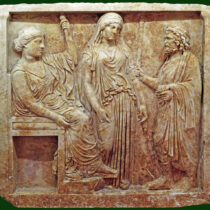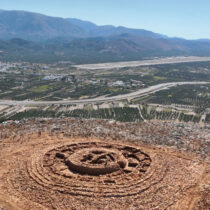The Archaeological Service of Denmark depends heavily on the large number of local museums, staffed with an educated personnel. The approximately 150 museums of the country are controlled by the Museums Law, which sets the objectives of these institutions and the regulations of all activities regarding antiquities and archaeology.
The person responsible for applying this legislation is the State Ephor of Antiquities, the President of the National Museum and of the Archaeological Committee. The local cultural/historic museums, that are state supported , have the main responsibility for archaeological activities. These museums, created thanks to citizens’ initiative, are scattered throughout the country and have the right to undertake archaeological projects in their vicinity after the approval of the Archaeological Committee. The basic prerequisites that a museum must have in order to be granted with such an approval is to count among its staff at least one archaeologist, to have a sufficient budget as well as the architectural facilities for the realization of the project. The major part of the archaeological work is represented by the so-called emergency excavations, carried out before or right after the erection of buildings or other construction works. The State Ephor of Antiquities or usually an interested local museum authorized by him has the legal right to be present, through its representative, wherever soil works are executed and to send a report for any finds discovered during these works to the Ephor. The local museums participate in the financing of archaeological projects , unless the work is executed by a public authority. The Museums Law has been created on the principle of the decentralization of museums. The relation between the Archaeological Institute and the Archaeological Service of Denmark is the following: the Institute must obtain the approval of the Ministry of Culture for its projects, and depending on its scheduled works, it cooperates with the local Ephorates of Antiquities. Administratively it belongs to the Ministry of Education and is financed mainly by the private sector. Thus the Insitute’s research and the realization of its projects do not depend on the state budget.


